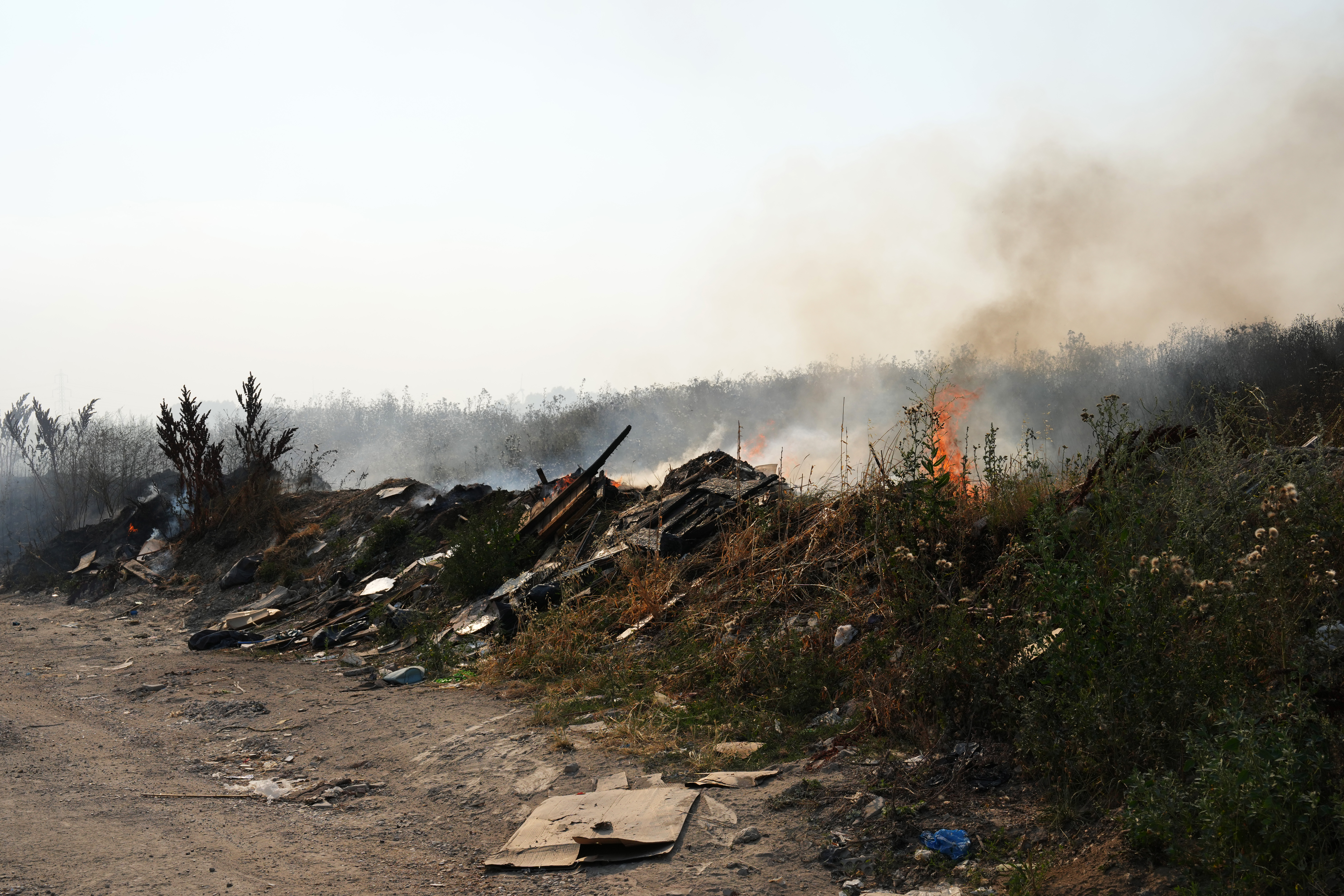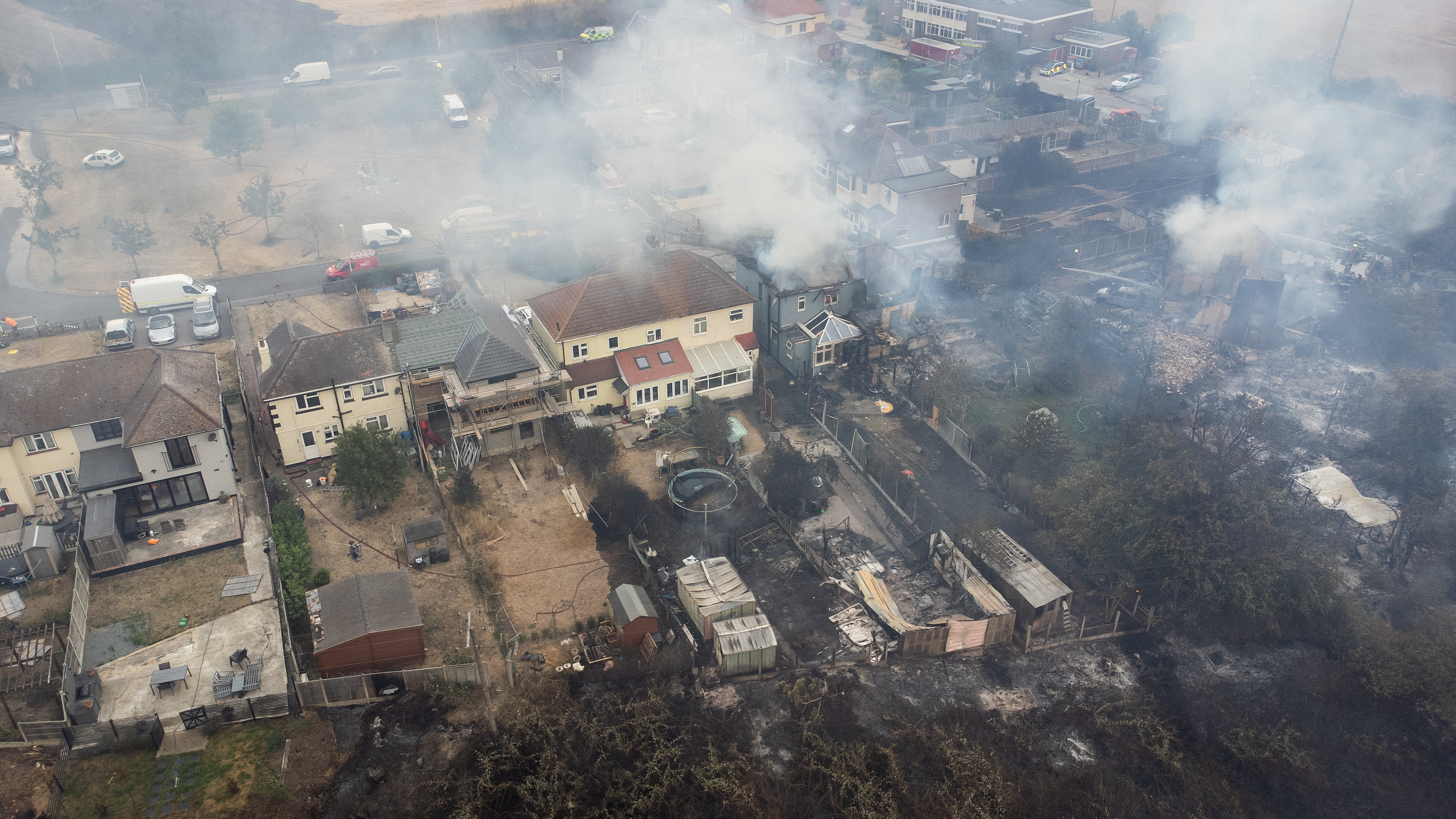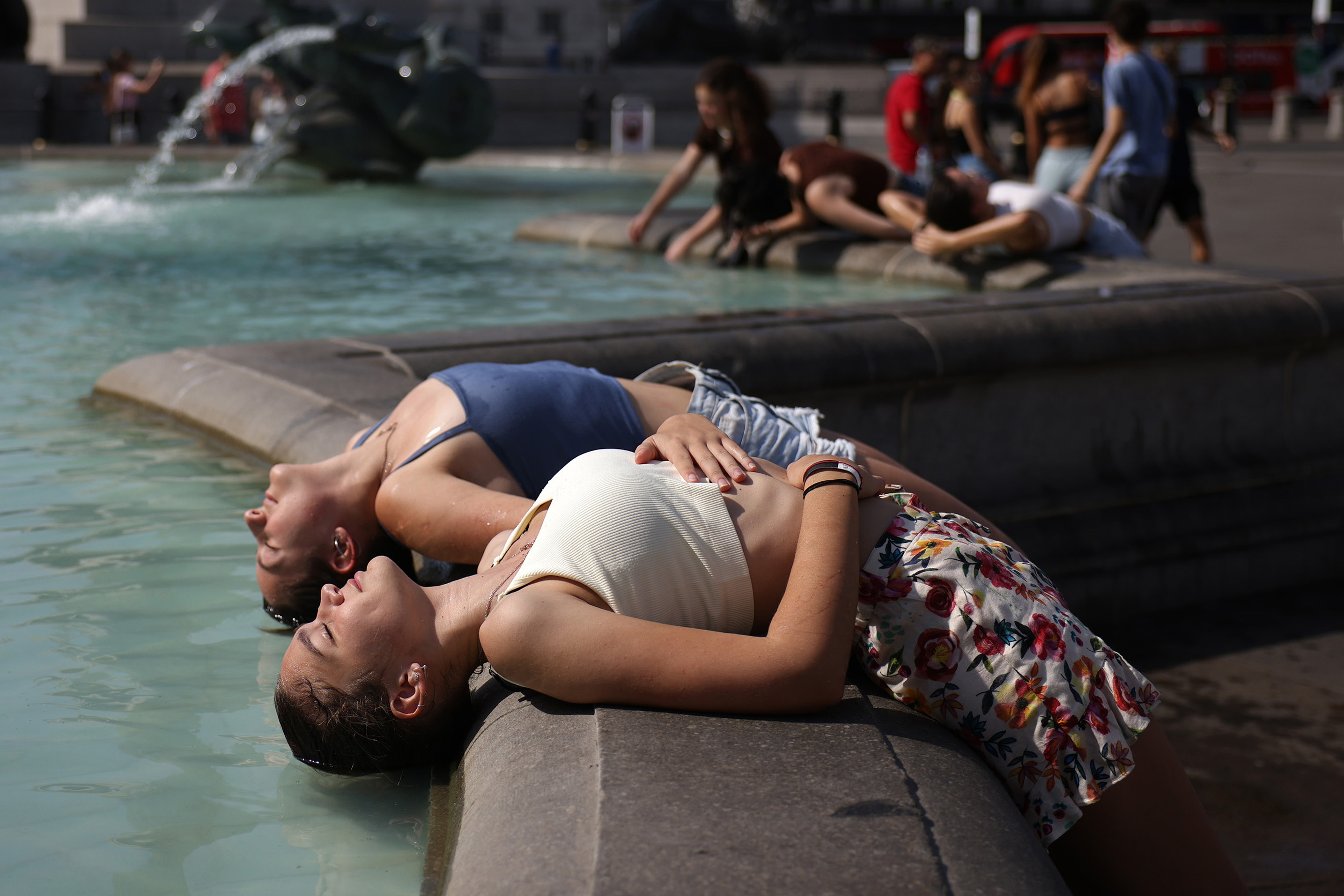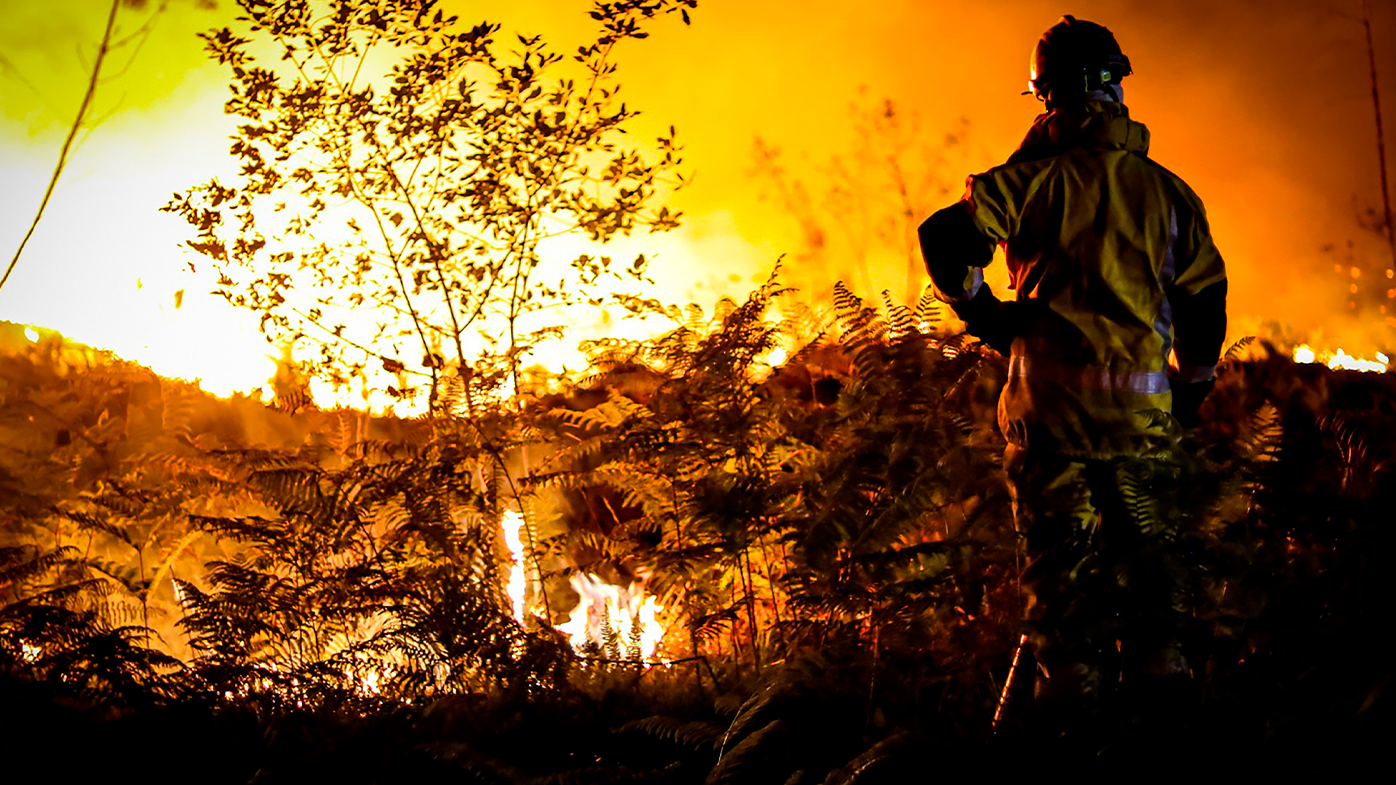Britain has shattered its record for the highest temperature ever registered, topping 40C for the first time in a country ill prepared for such extremes.
London mayor Sadiq Khan said the heatwave was causing a "huge surge" in the number of fires in the city.
The London Fire Brigade declared a major incident on Tuesday afternoon and is under "immense pressure", he said.
READ MORE: Three children found dead after horror house fire in Western Australia

One of the blazes, a grass fire in Wennington on the eastern edge of the city, is being tackled by 100 firefighters.
"This is critical … please be safe," Khan said on Twitter.
READ MORE: Australia has lost more mammals than any other continent, report warns
https://twitter.com/metoffice/status/1549393632897236998
Temperature records are often broken by a fraction of a degree, in one or maybe two locations. But Tuesday's extraordinary heatwave sent the mercury soaring past the previous record in at least 29 different weather stations across England, the Met Office weather bureau said based on provisional figures.
Coningsby in Lincolnshire was the new record holder on Tuesday afternoon (Wednesday morning AEST) with a provisional high of 40.3C, a staggering 1.5C hotter than the previous mark of 38.7C, a record set in 2019.
The Met Office said provisional figures showed the temperature remained above 25C overnight in parts of the country for the first time, and Britain's old temperature record had tumbled before midday.
READ MORE: Putin leaves Russia to meet with key US foe
Tuesday's record came as the country sweltered in heat that also scorched mainland Europe for the past week. Travel, healthcare and schools were disrupted in a country not prepared for such extremes.
A huge chunk of England, from London in the south to Manchester and Leeds in the north, remained under the country's first warning of "extreme" heat, meaning danger of death even for healthy people.
At least six people were reported to have drowned across the UK in rivers, lakes and reservoirs while trying to cool off.
On Tuesday, a man in his 20s was pulled from Cotswold Water Park, Ashton Keynes, but couldn't be revived, as police responded to a "serious and ongoing incident" near Clacton Pier in Essex.
Britain's Supreme Court closed to visitors after a problem with the air conditioning forced it to move hearings online. The British Museum planned to close early.
Many public buildings, including hospitals, don't have air conditioning, a reflection of how unusual such extreme heat is in the country better known for rain and mild temperatures.
Unusually hot, dry weather has gripped large swathes of the continent since last week, triggering wildfires from Portugal to the Balkans and leading to hundreds of heat-related deaths.
Images of flames racing toward a French beach and Britons sweltering — even at the seaside — have driven home concerns about climate change.
Many people coped with the heat wave by staying put. Road traffic was down from its usual levels on Monday. Trains ran at low speed out of concern rails could buckle, or did not run at all.
London's Kings Cross Station, one of the country's busiest rail hubs, was empty on Tuesday, with no trains on the busy east coast line connecting the capital to the north and Scotland. London's Luton Airport had to close its runway because of heat damage.
Transport Secretary Grant Shapps said Britain's transport infrastructure, some of it dating from Victorian times, "just wasn't built to withstand this type of temperature — and it will be many years before we can replace infrastructure with the kind of infrastructure that could".
Climate experts warn that global warming has increased the frequency of extreme weather events, with studies showing that the likelihood of temperatures in the UK reaching 40C is now 10 times higher than in the pre-industrial era.
Drought and heatwaves tied to climate change have also made bushfires harder to fight.
The dangers of extreme heat were on display in southern Europe. At least 748 heat-related deaths have been reported in the heat wave in Spain and neighbouring Portugal, where temperatures reached 47C earlier this month.
In the Gironde region of south-western France, ferocious bushfires continued to spread through tinder-dry pines forests, frustrating firefighting efforts by more than 2000 firefighters and water-bombing planes.
https://twitter.com/metoffice/status/1549345259016142848
More than 37,000 people have been evacuated from homes and summer holiday spots since the fires broke out July 12 and burned through 190 square kilometres of forests and vegetation, Gironde authorities said.
A smaller third fire broke out late on Monday in the Medoc wine region north of Bordeaux, further taxing firefighting resources.
Five camping sites went up in flames in the Atlantic coast beach zone where blazes raged, around the Arcachon maritime basin famous for its oysters and resorts.
But weather forecasts offered some consolation, with heatwave temperatures expected to ease along the Atlantic seaboard Tuesday and the possibility of rains rolling in late in the day.
Source: 9News








